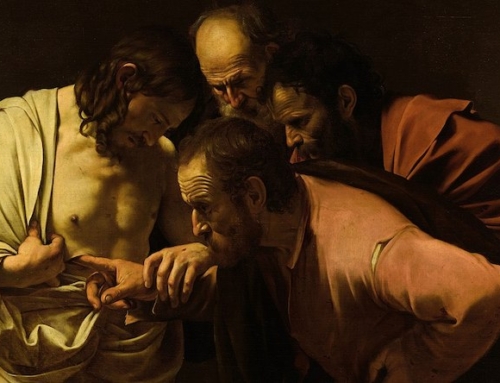Several years ago I took up running for exercise. I have never been much of an athlete myself and I was not familiar with physical training in any official capacity.
When I arrived at the novitiate, one of the brothers who arrived with me was an athlete. He taught me how to pace myself. Before, I would always start super fast, never finishing without having to walk or take a break. I would always fall behind and my brother would usually finish the route, then run back and join me until I finished. I had always thought running as fast as you could for as long as you could resulted in better running. After I started heeding the advice of my brother, I learned that I was plain wrong, and, in fact, my times improved the better I got at pacing.
I am not the first to compare the spiritual life to running. Saint Paul made this comparison in his letter to Timothy: “I have competed well; I have finished the race; I have kept the faith” (2 Tim 4:7). Hidden in my athletic blunder are three points I would like to offer for pondering as you begin your Lenten penances.
Pacing. Learn from my mistake and pace yourself, or else “finding himself unable to finish the work the onlookers should laugh at him and say, ‘This one began to build but did not have the resources to finish’” (Luke 14:29–30). It is important to do something reasonable—something you can maintain for all of Lent. So, if your penance is to pray a rosary every day, don’t be embarassed if, at the beginning, you only get around to a decade or two. Resolve to do better and keep pushing yourself, but not so much that you burn out at the beginning of Lent.
Perseverance. It is important to stick with it, and a good way to do that is to find someone else “sticking with it” too! When my brother and I would go running, right when I would want to give up is right when I would look up and see my brother coming back to cheer me on. Perseverance is not an exploration in self-reliance. The companionship of others usually helps us accomplish what we set out to do. White-knuckling can strengthen our wills but often leaves us unchanged in the long run. Let your penances draw you closer to Christ and others. So, if your Lenten practice is praying before the tabernacle for 15 minutes a day, perhaps a friend or family member can join you and you can make an outing out of it. Drawing closer to Christ with others is what we do as members of his Body, the Church and can help us avoid becoming too self-focused.
Purpose. Whatever effect you want your penance to have is the reason for your beginning it. Have a clear idea of why you have chosen some particular penance over another. When I began running, initially it was for health and eventually it became about beating my best time. Lent is not just a time of self-improvement; it is a time of repentance to improve our relationship with God, always keeping in mind our preparation for Easter. David, after repenting of his sin with Bathsheba, says, “For you do not desire sacrifice or I would give it; a burnt offering you would not accept, My sacrifice O God, is a contrite spirit, a humbled contrite heart, you will not scorn” (Psalm 51:18–19). The reason we take up penance in the first place is not because it is difficult. The reason we take up penances is to remake us in Christ’s image. Consider those things that distance you from God or some ways you can grow closer to God. He is already madly in love with you—what is preventing you from being madly in love with him? God delights in a contrite heart. Choose this Lent to make your heart contrite.
It was thanks to my brother who taught me how to pace myself that I have since come to get better at and enjoy running. Whatever you might do this Lent, I pray that you grow closer to Christ because of it. Easter is only 44 calendar days away. Pace yourself, keep the faith, finish the race.
✠
Image: Eugène Burnand, The Disciples Peter and John running to the sepulchre on the morning of the Resurrection







